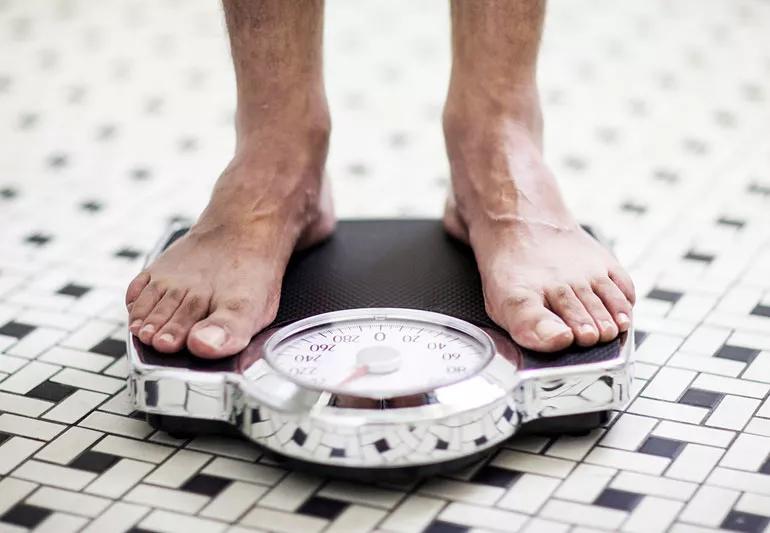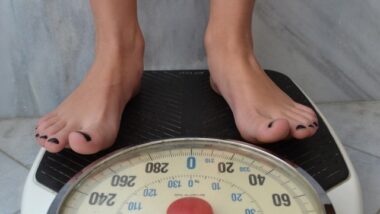Weigh yourself once a week for effective weight loss tracking. Daily weigh-ins can lead to unnecessary stress and fluctuations.
Maintaining a consistent weigh-in schedule is crucial for accurate weight loss tracking. Weekly weigh-ins provide a balanced approach, minimizing the impact of daily fluctuations caused by factors like water retention or food intake. This method helps you stay focused on long-term progress rather than short-term changes.
Consistency in timing and conditions of weigh-ins, like weighing yourself at the same time each week, ensures more reliable results. Tracking your weight loss journey weekly can keep you motivated and informed, helping you make necessary adjustments to your diet and exercise routine. This approach supports sustainable weight loss and a healthier lifestyle.
Benefits Of Frequent Weighing
Frequent weighing offers many benefits for your weight loss journey. It helps keep you focused and on track. Regularly stepping on the scale can provide valuable insights and boost your motivation.
Tracking Progress
Tracking your weight daily helps you see your progress. It shows how your weight changes over time. This can help you understand what works best for you.
Here are some key points:
- Daily weighing helps you notice small changes.
- You can adjust your diet and exercise plan.
- It helps you avoid surprises during your journey.
Seeing progress keeps you focused and committed. It’s a simple way to stay on track with your goals.
Boosting Motivation
Frequent weighing can boost your motivation. Seeing the numbers go down feels rewarding. It makes you feel proud of your efforts.
Consider the following:
- Regular feedback keeps you motivated.
- Small wins build confidence.
- It helps you stay committed to your plan.
Feeling motivated can make a big difference. It keeps you moving towards your weight loss goals.

Credit: www.healthline.com
Potential Drawbacks
Weighing yourself often can help track progress, but there are some drawbacks. These potential pitfalls can impact your mental and physical health. Let’s explore the potential drawbacks of frequent weighing.
Obsessive Behavior
Frequent weighing can lead to obsessive behavior. People may become too focused on the number on the scale. This obsession can overshadow other important health metrics. It can also cause anxiety and stress. Obsessive weighing can harm your mental well-being.
Daily Fluctuations
Our body weight fluctuates daily due to various factors. These include water retention, food intake, and hormonal changes. Daily weighing may show these fluctuations and cause confusion. It is important to understand that these changes are normal. Here is a table showing common reasons for daily weight changes:
| Factor | Description |
|---|---|
| Water Retention | Body retains water due to salt intake. |
| Food Intake | Weight increases after eating a meal. |
| Hormonal Changes | Hormones can cause temporary weight gain. |
Understanding these fluctuations can help reduce stress. Focus on long-term trends rather than daily changes. This approach is healthier and more sustainable.
Finding The Right Frequency
Determining how often to weigh yourself can impact your weight loss journey. Some people prefer daily weigh-ins, while others choose weekly check-ins. Both approaches have their pros and cons. Understanding these can help you find the frequency that works best for you.
Daily Weigh-ins
Daily weigh-ins can keep you on track. Seeing your weight each day gives immediate feedback. This can help you adjust your diet and exercise quickly. You can see the effects of your daily choices.
Here are some benefits of daily weigh-ins:
- Immediate feedback: Helps you stay motivated and make quick changes.
- Consistency: Weighing daily creates a routine.
- Small changes: You can notice small weight changes easily.
But daily weigh-ins also have downsides:
- Fluctuations: Your weight can vary daily due to water retention or food intake.
- Stress: Seeing minor gains can stress you out.
Weekly Weigh-ins
Weekly weigh-ins offer a broader view of your progress. You avoid daily fluctuations and focus on long-term trends. This can reduce stress and keep you motivated.
Benefits of weekly weigh-ins include:
- Less stress: You worry less about daily changes.
- Big picture: Focus on overall progress.
- Consistency: Weighing weekly creates a routine too.
Downsides of weekly weigh-ins are:
- Less immediate feedback: Changes may take longer to notice.
- Miss small changes: Small weight gains or losses may be overlooked.

Credit: www.weightlossresources.co.uk
Tools And Techniques
Tracking your weight is crucial for effective weight loss. Using the right tools and techniques can make this journey simpler and more accurate. In this section, we will explore various methods, including digital scales and weight loss apps, to help you monitor your progress effectively.
Digital Scales
Digital scales offer precise measurements. They are easy to use and provide quick results. Here are some features of digital scales:
- High accuracy
- Easy readability
- Additional metrics like body fat percentage
- Bluetooth connectivity
Many digital scales come with apps to track your weight over time. This makes it easier to see trends and make necessary adjustments.
Weight Loss Apps
Weight loss apps are another fantastic tool. These apps can do much more than just track your weight. Here’s a list of useful features:
- Calorie tracking
- Exercise logging
- Progress charts
- Community support
- Recipe suggestions
Some popular weight loss apps include MyFitnessPal, Lose It!, and Noom. These apps can sync with your digital scale for seamless data collection.
By combining digital scales and weight loss apps, you can create a comprehensive plan. This approach helps you stay motivated and informed throughout your weight loss journey.
Incorporating Weigh-ins Into Routine
Tracking your weight is crucial for weight loss. Incorporating weigh-ins into your routine helps you stay consistent and motivated. Here’s how to make weigh-ins a seamless part of your daily life.
Morning Rituals
Weigh yourself in the morning. This is the best time to check your weight. Your body is rested, and you haven’t eaten yet.
Follow these steps for your morning weigh-in:
- Use the bathroom first.
- Remove heavy clothing.
- Step on the scale.
Log your weight in a journal or app. This helps you track your progress over time.
Consistency Tips
Consistency is key for accurate results. Weigh yourself at the same time every day.
Here are some tips to stay consistent:
- Set a daily reminder on your phone.
- Keep your scale in the same place.
- Track your weight in a dedicated notebook or app.
It’s also important to understand weight fluctuations. Daily weight can vary due to water retention, meals, and other factors. Focus on long-term trends rather than daily changes.
| Tip | Description |
|---|---|
| Same Time | Weigh yourself every morning. |
| Same Scale | Use the same scale for consistency. |
| Track Data | Log your weight daily. |
Psychological Impact
Weighing yourself regularly can affect your mental health. Understanding the psychological impact is key.
Positive Reinforcement
Seeing a lower number on the scale can be motivating. It gives a sense of achievement. This can help you stay committed to your weight loss journey. Positive results can boost your confidence and self-esteem.
Tracking your progress with a scale helps you stay focused. You see the immediate effects of your efforts. This can drive you to continue healthy habits.
Coping With Plateaus
Weight loss plateaus are normal. They can be frustrating. You may not see progress on the scale. This can impact your motivation negatively.
Understanding plateaus is important. They are a sign that your body is adjusting. Focus on other measurements like body fat percentage or inches lost. This can help you stay positive.
Here are some tips to cope with plateaus:
- Review your diet and exercise routine.
- Set small, achievable goals.
- Stay patient and consistent.
Remember, the number on the scale is just one measure of success. Celebrate non-scale victories like improved fitness or better mood.
Expert Advice
Tracking your weight loss progress is crucial for success. Expert advice can help you determine how often to weigh yourself. Let’s dive into insights from nutritionists and fitness trainers.
Nutritionist Insights
Nutritionists recommend a balanced approach to weighing yourself. Here are some key tips:
- Weigh yourself once a week: This helps track progress without daily fluctuations.
- Choose the same day and time: Consistency is vital for accurate measurements.
- Consider your diet: A healthy diet can impact your weight readings.
Fitness Trainer Tips
Fitness trainers also have valuable advice on weighing yourself. Their tips include:
- Monitor your body composition: Muscle gain can affect the scale.
- Use multiple metrics: Combine scale readings with body measurements.
- Stay positive: Focus on overall health, not just the number on the scale.
| Expert | Recommendation | Reason |
|---|---|---|
| Nutritionist | Weigh once a week | Avoids daily fluctuations |
| Fitness Trainer | Monitor body composition | Muscle gain affects weight |
By following expert advice, you can make your weight loss journey smoother. Remember to stay consistent and positive.

Credit: health.clevelandclinic.org
Frequently Asked Questions
How Often Should I Weigh Myself When Trying To Lose Weight?
Weigh yourself once a week for consistent tracking. Daily fluctuations can be misleading. Stick to the same day and time.
How Often Should You Measure Yourself During Weight Loss?
Measure yourself weekly during weight loss. This frequency helps track progress without causing stress or obsession.
Why Do I Weigh 5 Pounds Less In The Morning?
You weigh 5 pounds less in the morning due to overnight water loss through breathing, sweating, and bathroom use.
What Is My Real Weight, Morning Or Evening?
Your real weight is best measured in the morning. This is before eating or drinking anything.
Conclusion
Weighing yourself regularly can be a powerful tool for weight loss. Find a frequency that keeps you motivated. Consistency is key to tracking your progress accurately. Remember, the scale is just one measure of success. Combine it with healthy eating and exercise for the best results.
Stay committed to your goals!


